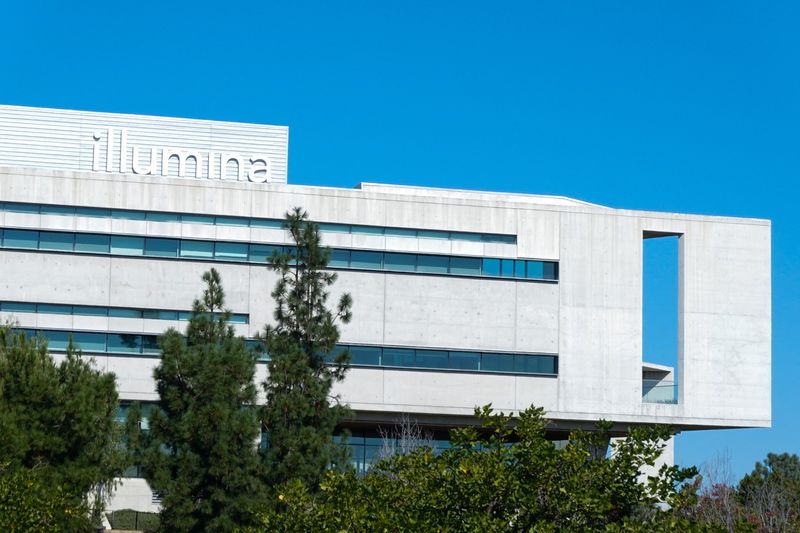By Foo Yun Chee
BRUSSELS (Reuters) -EU antitrust regulators suffered a blow on Thursday as an adviser to Europe's top court said they exceeded their powers when they blocked U.S. gene sequencing company Illumina (NASDAQ:ILMN)'s $7.1 billion bid for Grail.
The court adviser's opinion, if subsequently supported by judges, could influence the EU competition enforcer's planned assessment of three other merger deals where innovation concerns are central, one of which involves U.S. chipmaker Qualcomm (NASDAQ:QCOM).
The European Commission in 2021 asserted a rarely used power called Article 22 to assess the Illumina-Grail deal even though it was below the EU merger revenue threshold, following requests from several European Union countries.
It subsequently vetoed the deal and ordered Illumina to unwind the transaction that the company had completed before securing regulatory approval, leading Illumina to file challenges on various grounds.
A lower tribunal in 2022 sided with the EU competition enforcer, prompting Illumina to take its case to the Luxembourg-based Court of Justice of the European Union (CJEU).
CJEU Advocate General Nicholas Emiliou said judges should set aside the General Court judgment because it had erred in its interpretation of Article 22 and that they should annul Commission decisions on requests for reviews made by member states.
He said member states may not request the Commission to examine a concentration that does not have a Community dimension, even where they have no competence to review such a concentration under national law.
"In one fell swoop, the Commission would gain the power to review almost any concentration, occurring anywhere in the world, regardless of undertakings' turnover and presence in the European Union and the value of the transaction, and at any moment in time, including well after the completion of the merger," Emiliou said.
"Moreover, the procedures that would result from a broad interpretation of Article 22 of the Merger Regulation would hardly be efficient, predictable and capable of ensuring legal certainty to the parties," he said.
Illumina welcomed the recommendation.
"Illumina agrees with the Advocate General that the European Commission's assertion of jurisdiction over this merger was improper," the company said in an email.
"Developments in this case will not delay the ongoing process of divesting Grail, with the goal of finalising the divestment terms by the end of the second quarter of 2024."
Judges, who follow such non-binding opinions in the majority of cases, will rule in the coming months.
Using its Article 22 powers and following requests from several EU countries, the Commission has asked Qualcomm to seek its approval to buy Israeli firm Autotalks.

Deutsche Boerse-owned European Energy Exchange (EEX) was also told to file its acquisition of Nasdaq's European power trading and clearing business with the EU watchdog after requests from some EU countries. Both deals fall below the EU turnover threshold.
The case is C-625/22 P - Grail v Commission and Illumina.